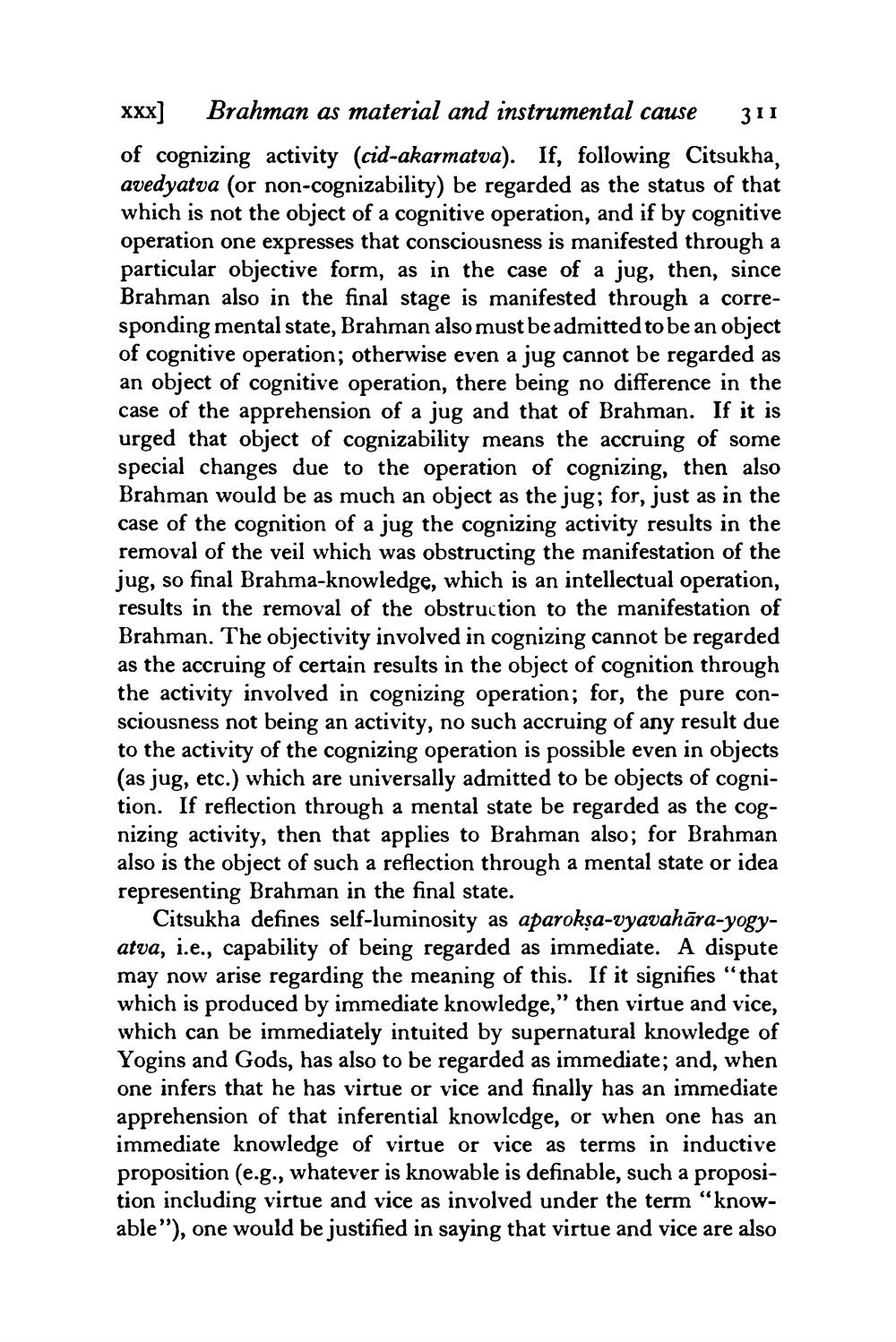________________
XXX] Brahman as material and instrumental cause 311 of cognizing activity (cid-akarmatva). If, following Citsukha, avedyatva (or non-cognizability) be regarded as the status of that which is not the object of a cognitive operation, and if by cognitive operation one expresses that consciousness is manifested through a particular objective form, as in the case of a jug, then, since Brahman also in the final stage is manifested through a corresponding mental state, Brahman also must be admitted to be an object of cognitive operation; otherwise even a jug cannot be regarded as an object of cognitive operation, there being no difference in the case of the apprehension of a jug and that of Brahman. If it is urged that object of cognizability means the accruing of some special changes due to the operation of cognizing, then also Brahman would be as much an object as the jug; for, just as in the case of the cognition of a jug the cognizing activity results in the removal of the veil which was obstructing the manifestation of the jug, so final Brahma-knowledge, which is an intellectual operation, results in the removal of the obstruction to the manifestation of Brahman. The objectivity involved in cognizing cannot be regar as the accruing of certain results in the object of cognition through the activity involved in cognizing operation; for, the pure consciousness not being an activity, no such accruing of any result due to the activity of the cognizing operation is possible even in objects (as jug, etc.) which are universally admitted to be objects of cognition. If reflection through a mental state be regarded as the cognizing activity, then that applies to Brahman also; for Brahman also is the object of such a reflection through a mental state or idea representing Brahman in the final state.
Citsukha defines self-luminosity as aparokșa-vyavahāra-yogyatva, i.e., capability of being regarded as immediate. A dispute may now arise regarding the meaning of this. If it signifies “that which is produced by immediate knowledge," then virtue and vice, which can be immediately intuited by supernatural knowledge of Yogins and Gods, has also to be regarded as immediate; and, when one infers that he has virtue or vice and finally has an immediate apprehension of that inferential knowledge, or when one has an immediate knowledge of virtue or vice as terms in inductive proposition (e.g., whatever is knowable is definable, such a proposition including virtue and vice as involved under the term "knowable"), one would be justified in saying that virtue and vice are also




